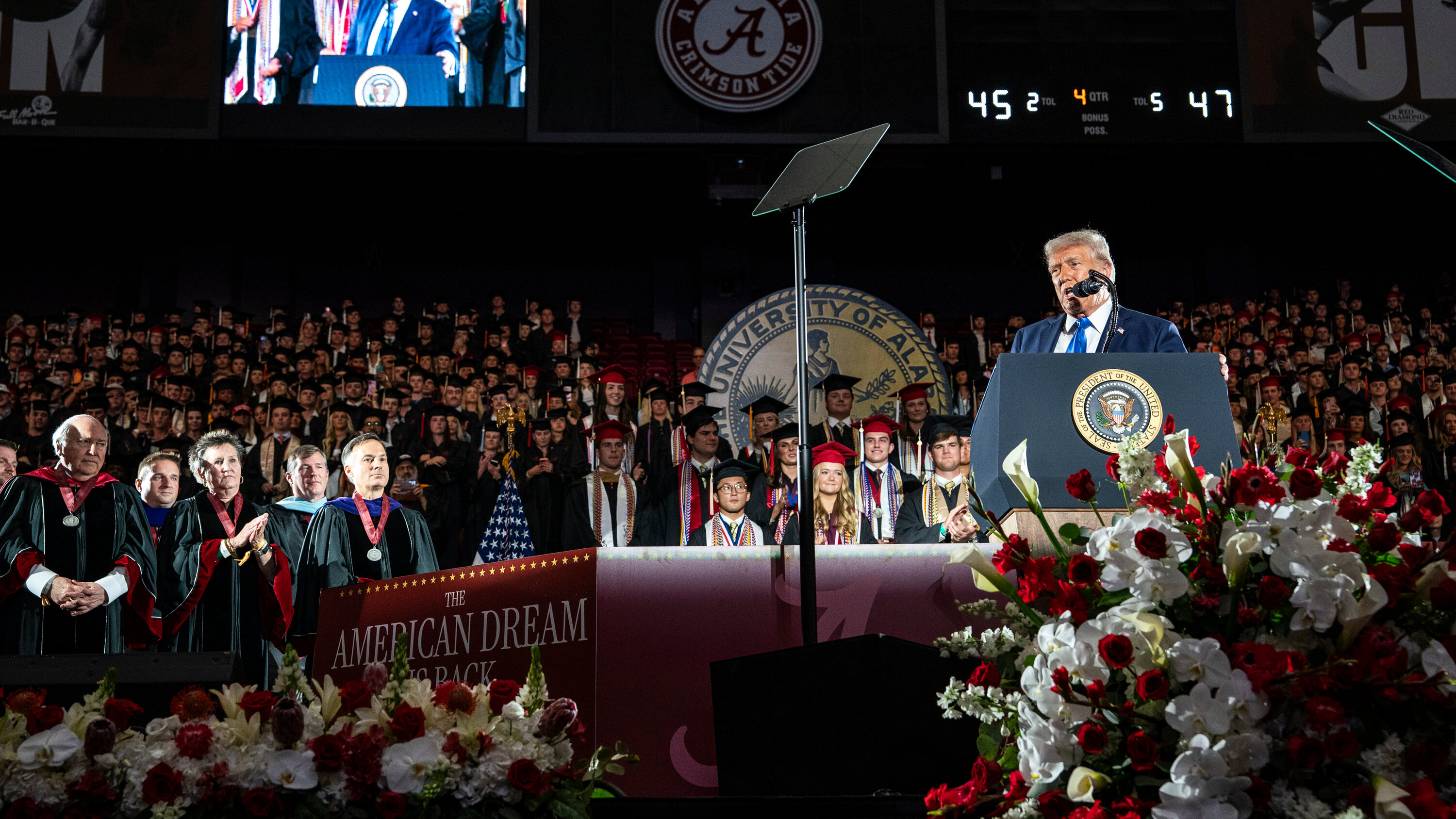Trump Turns Alabama Graduation Stage into Political Battleground

In a dynamic and wide-ranging address, the president captivated the audience with a mix of personal wisdom, political commentary, and passionate discourse. Weaving together advice about authenticity with sharp critiques of political opponents, he touched on an eclectic range of topics that sparked enthusiastic responses from the crowd.
Amid calls to embrace one's true self with guidance like "don't try to be someone else," the president fearlessly navigated complex issues. From the economic impact of egg prices to the nuanced debate surrounding transgender rights, his speech was a testament to his ability to connect with diverse audience concerns.
The crowd's repeated cheers underscored the president's skill in blending personal philosophy with political rhetoric, creating a compelling narrative that resonated with listeners. His willingness to address challenging subjects head-on, while maintaining an inspirational tone, demonstrated a leadership style that seeks to engage and unite rather than divide.
